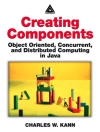The Second Symposium on Professional Practice in AI 2006 is a conference within the IFIP World Computer Congress 2006, Santiago, Chile. The Symposium is organised by the IFIP Technical Committee on Artificial Intelligence (Technical Committee 12) and its Working Group 12.5 (Artificial Intelligence Applications). The First Symposium in this series was one of the conferences in the IFIP World Computer Congi-ess 2004, Toulouse France. The conference featured invited talks by Rose Dieng, John Atkinson, John Debenham and Max Bramer. The Symposium was a component of the IFIP AI 2006 conference, organised by Professor Max Bramer. I should like to thank the Symposium General Chair, Professor Bramer for his considerable assistance in making the Symposium happen within a very tight deadline. These proceedings are the result of a considerable amount of hard work. Beginning with the preparation of the submitted papers, the papers were each reviewed by at least two members of the international Program Committee. The authors of accepted papers then revised their manuscripts to produce their final copy. The hard work of the authors, the referees and the Program Committee is gratefully aclaiowledged. The IFIP AI 2006 conference and the Symposium are the latest in a series of conferences organised by IFIP Technical Committee 12 dedicated to the techniques of Aitificial Intelligence and their real-world applications. Further infoirmation about TC12 can be found on our website http;//www.ifiptc I2.org.
Mục lục
Learning and Neural Nets.- Detection of Breast Lesions in Medical Digital Imaging Using Neural Networks.- Identification of Velocity Variations in a Seismic Cube Using Neural Networks.- Improving the k-NN method: Rough Set in edit training set.- Agents.- Membranes as Multi-agent Systems: an Application to Dialogue Modelling.- Agent Planning, Models, Virtual Haptie Computing, and Visual Ontology.- Improving Interoperability Among Learning Objects Using FIPA Agent Communication Framework.- An Agent-Oriented Programming Language for Computing in Context.- Search.- A Little Respect (for the Role of Common Components in Heuristic Search).- Recursive and Iterative Algorithms for N-ary Search Problems.- Ontologies and Intelligent Web.- Process of Ontology Construction for the Development of an Intelligent System for the Organization and Retrieval of Knowledge in Biodiversity — SISBIO.- Service interdependencies: insight into use cases for service composition.- Combining Contexts and Ontologies: A Case Study.- The RR Project — A Framework for Relationship Network Viewing and Management.- Web Service-based Business Process Automation Using Matching Algorithms.- A Graphic Tool for Ontology Viewing Based on Graph Theory.- Knowledge Engineering.- Using Competence Modeling to create Knowledge Engineering Team.- Intelligent Systems Engineering with Reconfigurable Computing.- Ontological Evaluation in the Knowledge Based System.- A Model for Concepts Extraction and Context Identification in Knowledge Based Systems.- Proposal of Fuzzy Object Oriented Model in Extended JAVA.- Knowledge Discovery.- Adopting Knowledge Discovery in Databases for Customer Relationship Management in Egyptian Public Banks.- Pattern Discovery and Model Construction: an Evolutionary Learning and Data Mining Approach.- Towards a Framework for Knowledge Discovery.- Language Processing.- Prototype Of Speech Translation System For Audio Effective Communication.- A Knowledge Representation Semantic Network for a Natural Language Syntactic Analyzer Based on the UML.- Applications.- Fast simulation of animal locomotion: lamprey swimming.- Towards a case-based reasoning approach to analyze road accidents.- Solving the Short Run Economic Dispatch Problem Using Concurrent Constraint Programming.- Micromechanics as a Testbed for Artificial Intelligence Methods Evaluation.- Burst Synchronization in Two Pulse-Coupled Resonate-and-Fire Neuron Circuits.- Ant Colonies using Arc Consistency Techniques for the Set Partitioning Problem.- Automatic Query Recommendation using Click-Through Data.- A Shared-Memory Multiprocessor Scheduling Algorithm.- Web Attack Detection Using ID3.- A Statistical Sampling Strategy for Iris Recognition.- An Application of ARX Stochastic Models to Iris Recognition.












